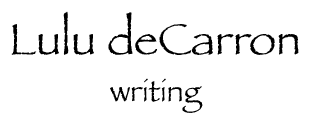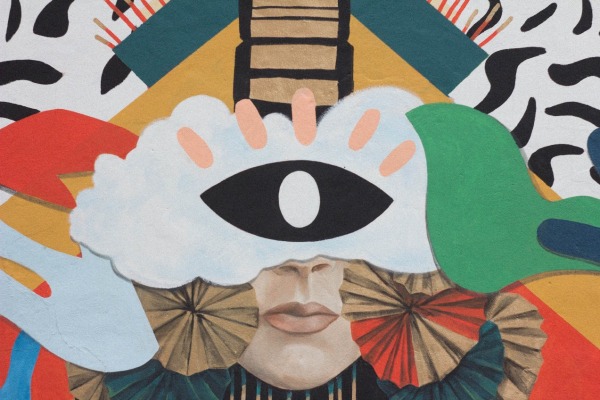


Until this simple breathing technique helped me take back control

Photo by Wil Stewart on Unsplash
I was sitting on my bed with pillows propped up behind my back, smiling as my needle broke through the fabric. I was delighting in the simple task of sewing a button on my blouse. I felt so peaceful and content, having just passed through years of insanity and heartbreak I was finally feeling grounded.
Eight years in a troubled marriage that ended in divorce, I became a single mother, a
job for which I was wholly unprepared. Then, an insane relationship with a man who turned out to be a con-man. To save my sanity, finally finding the strength to walk away required leaving my life savings behind. I
worked through those devastating years, finally becoming myself again, feeling pretty happy; my old fun-loving self was returning.
I walked to the phone my legs like jelly and called my mother. When she heard my voice, she said, “what’s wrong?” I was struggling to pull up a breath. Mom, something is very wrong. I related the symptoms to her. She told me she’d send my sister to take me to the ER. Kate was nearby so she arrived in a matter of minutes.
My
daughter was so frightened to see me in this state, a single mom and her rock,
she went to her room to sleep. That’s how she handled her fear that something
serious was happening to me. I’d been so healthy, this was frightening to a
12-year-old.
In the hospital ER, my breathing began to normalize, knowing that help was nearby, I began to relax.
I took a notebook from my handbag and started to write feverishly. I turned to my sister and asked, “Kate, how do you spell bequeath?” She looked up and asked, “what are you doing?” I said, “I’m writing my living Will.” She said sarcastically, “Oh, stop, put that away; you’re not dying.”
I was called into the triage room, beginning to feel calm. We waited 15 minutes for a doctor, and then when the curtain opened, a vision appeared. A movie- star handsome resident entered my cubicle. I turned and spontaneously said, “Well, hello.” My sister turned to me and whispered, with an eye roll, “let’s go, you’re Fine!” After the exam, the doctor told me I had an acute anxiety attack.
All the stress had finally caught up with me and was wreaking havoc with my nervous system.
That’s when the attacks began with a vengeance, randomly, some so powerful they affected my whole body. I never knew when they’d hit because they came on when I was feeling relaxed after it appeared I’d dealt with the stress.

One attack occurred while I was visiting Montreal for the Film Festival du Monde, which I attended every year since 1989. I was enjoying a film one minute, the next, my heart began to beat wildly, my breathing becoming labored. I walked to the ladies’ room, my legs weak. I put my head against the stall door trying to breathe, telling myself it would be OK and that this would pass. It did, but the anxiety attack left my body weak and my legs wobbly.
My
anxiety/panic attacks went on for almost two years. They came on suddenly, seemingly
out of nowhere. Then, one night, I levitated out of deep sleep. It felt as if
my body lifted a foot in the air. This
time was different. I sat up in bed, tired and angry. I said out loud, “I’m
suffering for traumas I did not create. I refuse to take this abuse of my body
any longer. Done!!!! No! More! Anxiety, no more! I’m going to sleep! And I did.
That was my last severe anxiety attack. When I told friends they were thrilled but
laughed saying, “You’re even dramatic when you’re alone.”
When
I asked a therapist friend why this happened he said, “Lu, it’s because you
took back control.” What a simple statement and yet profound.
Seeing
the results of my taking control, I began researching to see what natural
therapies dealt with anxiety. I had no intention of taking any medication; they
mask the problem.
While searching for reliable websites, I found this on the Mayo Clinic site.
The Mayo Clinic suggests: Diaphragmatic breathing
Diaphragmatic breathing is a great way to reduce stress. To get started, try the exercise below alone or with a partner:
The benefits of deep breathing extend beyond in-the-moment stress relief. Many studies have found that deep, yogic breathing helps balance the autonomic nervous system, which regulates involuntary bodily functions, such as temperature control and bladder function. This may help ease symptoms of stress-related disorders and mental health conditions such as anxiety, general stress, depression and post-traumatic stress disorder.
Anxiety disorders are the most common mental illness in the U.S., affecting 40 million adults in the United States age 18 and older, or 18.1% of the population every year. Anxiety disorders are highly treatable, yet only 36.9% of those suffering receive treatment.
AMAA, Anxiety and Depression Association of America
Now, when I begin to feel nervous I begin breathing from my diaphragm and immediately my heartbeat begins to slow. If I catch it as soon as I feel nervous, the anxiety attack never happens. If you’re suffering from anxiety attacks this breathing method may help. Along with yoga, meditation, long walks which also help, you can control your anxiety attacks.
Water
During my research I found this information about drinking water with lemon (I use grapefruit juice) but any citrus would work with a pinch of salt.
My doctor reinforced information from an article I read, that drinking more water helps replace the moisture anxiety saps from the body. Adding some fresh citrus juice and a pinch of salt (I use Himalayan but any natural salt will do) keeps the water from exiting the body too quickly, helping to keep you hydrated. I’m happy to report it works. Give it a try.
Thank you for reading.